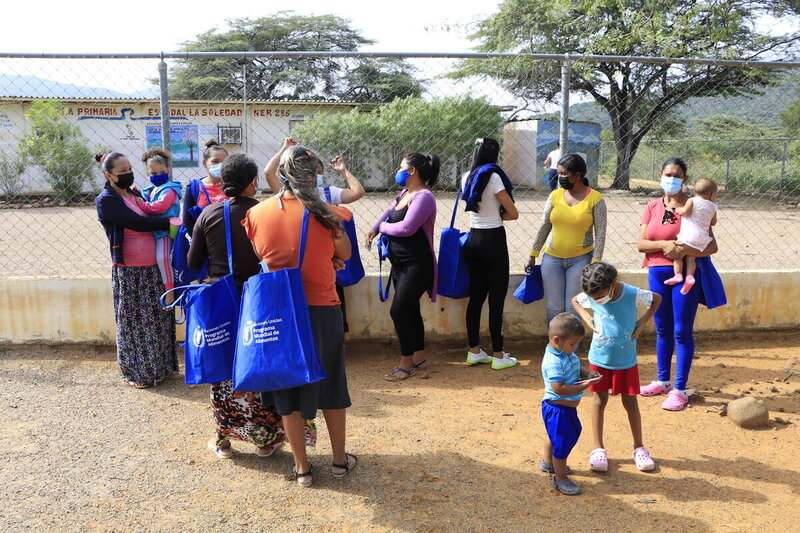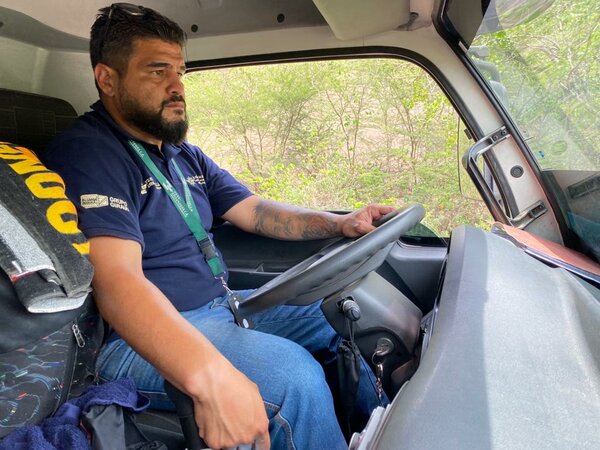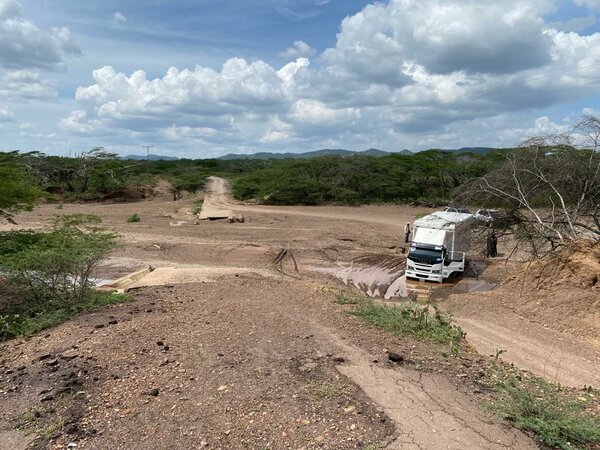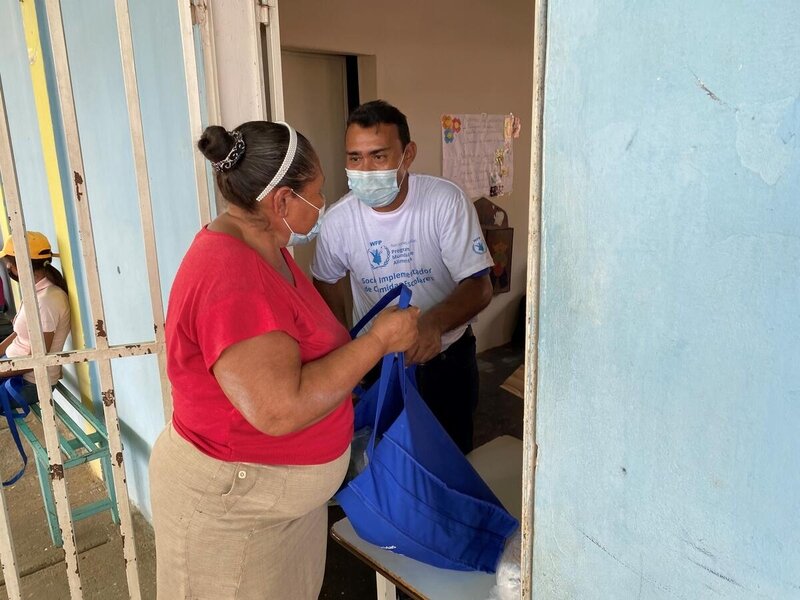Venezuela: School meals keep hunger at bay for rural communities

6 October, 08:30 - ‘We can’t start without coffee’
We’ve already driven one hour from Coro, the capital of Falcón state where, in July, after 46 years, the World Food Programme (WFP) marked its return to Venezuela with a new school meals programme. In the past four months, more than 130,000 WFP food kits were distributed in 275 schools in Falcón.
At a roadside café in Urumaco, I meet with Nora Arroyo, a nutritionist with local NGO implementing partner CEPOREJUN. In the carpark, Nora’s colleagues and the drivers of two trucks transporting WFP’s food assistance gather. She finished work 11 p.m. last night – another long day of distribution, this time to three schools, must start with black coffee and arepa, a traditional flatbread made of cornmeal.
09:15 - ‘Why do our bodies need proteins?’
A group of 15 parents, mostly women, wait outside the first pre-elementary school we stop at in the farming village of Soledad.
Here, 24 children and four school staff receive monthly WFP supplies.
Nora invites them to gather under a tree. It is the third time they have come to collect their children’s take-home food rations (of rice, lentils, salt and vegetable oil).
She wants to hear how they are preparing the food at home. Lentil stew with vegetables is the children’s favourite. One of the adults, Iusmari, who is holding her baby, raises a hand.
“What we miss for them is protein, we can’t really afford milk,” she says.
Nora explains: “You are right …. proteins form tissues, they build muscles.” She adds: “The rice and lentils in these bags complete each other to form protein. Then, when you mix them with vegetables as you say, you integrate vitamins.”
Schools are gradually reopening across Venezuela. Once their kitchens are operational, WFP plans to serve daily hot meals to the children and staff.
10:30 - ‘My daughter is putting on weight’
We arrive in the small town of Pedregral at a much bigger school, where 254 children and 48 staff receive monthly WFP supplies.
Parents are sitting on long wooden benches in a shaded area of the playground. There are many more bags of food to offload from the truck.
While Nora begins another conversation, 4-year-old Thania plays with her mother. “She has had nutritional problems,” says Maria. “With the food she is receiving Thania is now putting on weight. She has gained 2kg. She eats the lentils. She likes them together with rice and other ingredients.”


11:45 - ‘It’s a tough route’
After Pedregal, the asphalt quickly disappears. There are no other vehicles on this road than our convoy stirring up the dust. Only cactus and thorny trees crop up in this isolated rocky landscape in Falcón state. Our pace slows when we hit the hills. It feels like it is going to be a long 100km to Piedra Grande – today’s final destination. Parts of the stony road have been washed away. Angel, the truck driver, manoeuvres calmly with reggaeton playing in his cabin. “This access is difficult,” says Angel. You saw that some small bridges have collapsed. But we will get there. We have to make this effort to reach the children who need it.”
13:30 - ‘We need shovels’.
Angel and his assistants find themselves almost knee-deep in the mud. The truck’s got stuck in the mud crossing a large riverbed. Branches and stones are thrown under the wheels, but it won’t budge.
“We need spades to free the wheels and the chassis”, says Angel. Local villagers are alerted and eventually arrive on motorbikes with the needed tools. After a 90-minute delay, we are on the move again. It’s only a few kilometers to Piedra Grande. “During the rainy season, we’ll have to come back with all-terrain vehicle.”

15:15 - ‘I am very grateful’
One last left turn and the small convoy finally makes it to the village of Piedra Grande, three hours after leaving Pedregal – the challenging route we’ve taken is this community’s lifeline to fuel, food, or medical supplies.
The school is tiny: one tin-roofed room whose interior walls are painted yellow and green. With apologies for the delay, the team distribute the monthly WFP supplies to 27 children and 2 staff.
Ana is here to collect the take-home ration on behalf of Angel, her 3-year-old great-grandchild. Aged 73, she took on this responsibility when Angel’s father left home – his mother cares for another child, hospitalized in a neighbouring state. “Many needed this assistance you are providing, and they could do with a wider variety of products”, says Ana. “Since the programme started, we have seen children get better. Angel is more alert when he plays. He says he wants to come to school so he doesn’t miss out on the food.”
